- Author Antonio Harrison [email protected].
- Public 2023-12-16 07:44.
- Last modified 2025-01-22 21:44.
Popular pop singer of the USSR and Russia, Honored Artist of the RSFSR and People's Artist of Tatarstan; owner of a pleasant tenor-altino timbre; a person who could easily conquer the opera, a bright performer of lyric songs - Albert Asadullin.
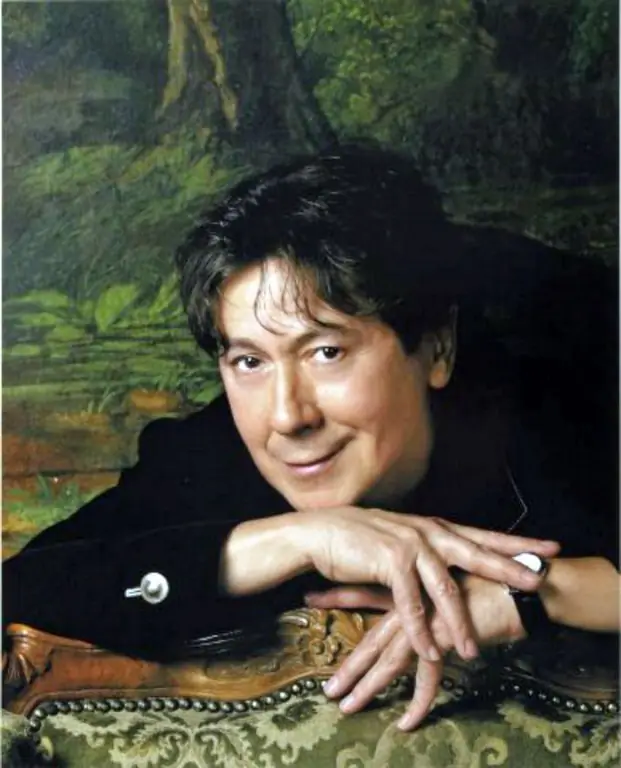
Biography and career
Albert Nurullovich Asadullin was born on September 1, 1948 in Kazan, in Sukonnaya Sloboda. The boy's family consisted of a retired officer who returned from the Great Patriotic War, an ordinary housewife and two older sisters.
The boy received his musical education at the Kazan Art School. Later, young Albert entered the Academy of Arts to study architecture at the Academy of Arts, where his vocal talent woke up. The beginning of his vocal career started in the amateur ensemble "Ghosts", which included the singer and performed at the Academy of Arts. Then Albert Nurullovich sang in the group "Nevskoe Vremya", for which he moved to Leningrad. On weekends, he performed at the House of Officers in Pushkin.
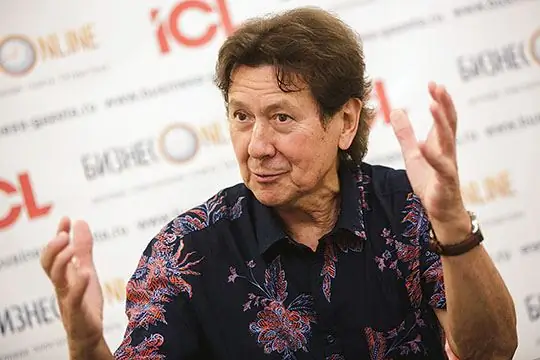
The success with the public and the pleasure of singing led to Asadullin's decision to professionally pursue singing. Moreover, after the first performances, the singer was noticed and invited to VIA "Singing Guitars", in which the singer successfully toured throughout the Soviet Union until 1980.
In addition, in 1975, Albert Nurullovich received an invitation to perform in the first Soviet rock opera Orpheus and Eurydice (directed by Mark Rozovsky). Then, in 1978, he was invited to play the role of Thiel Ulenspiegel in the rock opera Flemish Legend (by Romuald Greenblatt), and in 1979 - in the rock opera Races, the success of which was short-lived due to the then existing censorship.
In the same 1979, at the VI All-Union Competition of Variety Artists, Albert Nurullovich was awarded the title of Laureate of the first prize and the second prize at the International Competition "Golden Orpheus". After the award, Asadullin decided to perform solo. Songs for him were written by A. Petrov, V. Reznikov, D. Tukhmanov, I. Kornelyuk, V. Basner, L. Kvint and others.
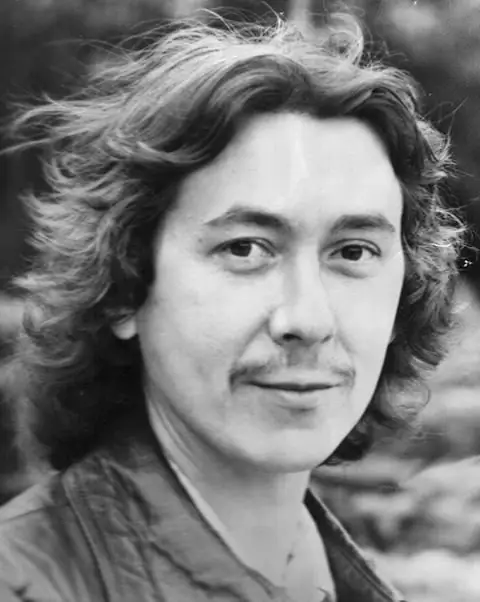
In 1980, the singer decided to create the Pulse ensemble, in which Albert worked for three years. The ensemble also included a future star - A. Rosenbaum.
From 1980 to 1984, Asaullin took an active part in government concerts and the Days of Culture of Leningrad in the cities of the USSR. Sometimes he performed abroad, together with G. Garanyan's orchestra.
From 1984 to 1988, Albert Asadullin acted as a soloist of the Lipetsk Regional Philharmonic. Often takes part in art festivals (Kemerovo Meridian, Morning of the Motherland).
In 1988, the singer's biography was replenished with the title "Honored Artist of the RSFSR".
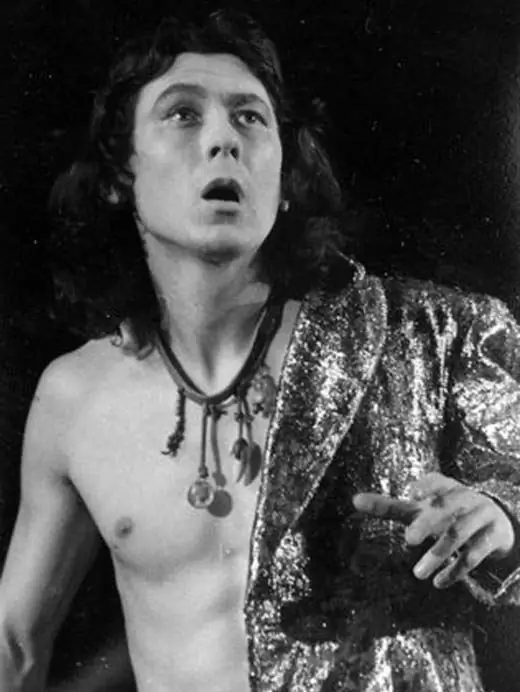
Further, until 1989, Asadullin prefers Tatar folk songs, after which he returns to work in the rock direction. He sings the title role in the Magdi rock suite (staged by Damir Siraziev), the first Tatar folk-rock opera. It was this performance that was broadcast in many cities of Tataria, in Leningrad and Moscow in 1990-1992.
In 1993, a concert took place in the Oktyabrsky Hall (St. Petersburg).
In 2010, Albert was invited to the main role in the musical "The Nameless Star" (based on the play by Mikhail Sebastian). In April of the same year, a new program "Music of the Soul" took place at the Gorky Palace of Culture. In the spring of 2012, Asadullin, together with the Minus Treli group, presents a new program "With a Song to the World", which includes various songs of the peoples of the world in different languages.
The singer's contribution to the cultural heritage of society is quite significant. His diverse creativity never ceases to amaze the listener. For his creative work, the singer even voiced the animated film "Dwarf Nose" (2003). Today he works as a soloist of the State Concert and Philharmonic Institution "Petersburg-Concert". The artist is often attracted to performances at major celebrations: 1000th anniversary of Kazan (2005); a concert program dedicated to the memory of the singer Anna German - "Quiet Words of Love" (2008); anniversary benefit performance, which included scenes from rock operas, classics, Tatar folk songs and much more. Albert Asadullin continues to take part in various productions and performances in the lead role. He is often invited to television, to government concerts and festivals, where he constantly appears as a guest of honor. He presents the national song in Poland, Finland, Germany, India and other countries.
The artist's name takes an honorable place in the World Encyclopedia of Folk, Jazz, Pop and Rock Music.
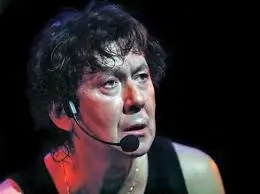
Creation
In 1982, Asadullin performed the soundtrack to the 4-episode feature film "Niccolo Paganini" - a lyrical, ironic theme of S. Banevich. In 1984 he sang a song with heartfelt verses about the eternal union of Love and Music, the future hit of the twentieth century - "Road without end". It was with this hit that Asadullin became a laureate of the Song-84 song festival and was invited to take part in the final gala concert dedicated to the 1985 New Year.
In 1987, the first collection "All this happened with us" was released. It includes many of Asadullin's popular songs: "Boy and Girl were Friends", "Road without End", "All That Was with Us", etc.
In 1995, the second disc "Road without End" was released, with the best songs of Asadullin.
During the singer's creative career, his songs were included in 15 different collections. The singer continues to delight his fans today.
The last two albums were released: “Albert Asadullin. Retro Golden Collection "(2008) and" Albert Asadullin. Golden Collection. Best Songs”(2009).
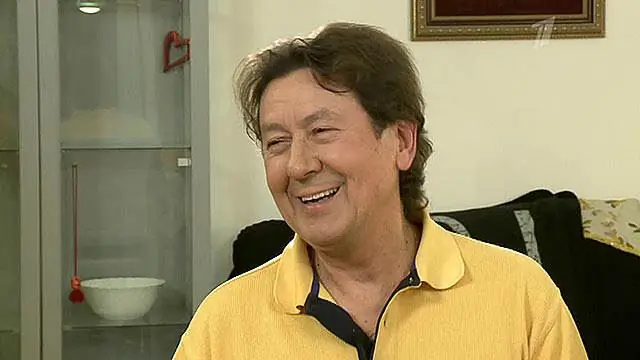
Personal life
Albert Nurullovich Asadullin was married twice. From his first marriage, the singer has a son - an artist-designer.
The singer met his second wife, theater manager Elena Asadullina in 2000 at a tourist center in the village of Losevo. The age difference between the spouses is 30 years. Elena helps Albert as an administrator. In her words: “My husband says that thanks to me and the children, he is 30 years younger. I believe that thanks to him I became wiser. In the marriage, the couple had two daughters - Alisa and Alina.






